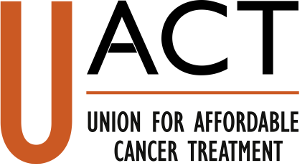Office of the US Trade Representative
2016 Special 301 Review
March 1, 2016. UACT delivered testimony at the Special 301 Review hearing at the Office of the US Trade Representative.
2015 Special 301 Review
February 27, 2015. Following the Special 301 Review hearing at the Office of the US Trade Representative, UACT submitted supplemental comments to USTR in order to address several comments and questions posed to UACT during the Tuesday hearing. The Special 301 Review and Report is a USTR’s annual assessment of foreign countries’ intellectual property policies and subsequent list of (in their view) the worst IPR offenders.
February 24, 2015. At the hearing for the Special 301 Review, Dr. Manon Ress gave a testimony to reiterate and expand on UACT’s official comments filed to the public comment period of the US Trade Representative’s 2015 Special 301 Review.
February 6, 2015. UACT submitted official comments to the public comment period for the Office of the US Trade Representative’s 2015 Special 301 Review. To view UACT’s comments on the Federal Register website, to read other organizations’ submissions, and to post your own comments, please visit the federal register notice here.
US Trade Pressures on India Regarding Intellectual Property Policies
October 29, 2014. Letter to Ambassador Michael Froman urging him to cease USTR’s pressure on India over compulsory license on dasatinib patents. Also available as a text file.
The UACT letter to Ambassador Froman and the submission to the USTR Special 301 Report out-of-cycle review of India’s IP policies refer to recent reports suggesting that USTR is pressuring the Indian government to reject a compulsory license on dasatinib, a drug for a rare form of leukemia.
For UACT, the dasatinib dispute illustrates the shortcomings of US trade policy and its impact on cancer patients. The US government opposition to a compulsory license on dasatinib is a de facto endorsement of an excessive price, and will have predictably harsh consequences for leukemia patients who have developed resistance to imatinib. The UACT letter also challenges the assumption that USTR is advancing US interests by promoting stronger monopolies of medicines.
October 29, 2014. Submission to the USTR Special 301 Report out-of-cycle review of India’s intellectual property policies. Also available as a text file.
